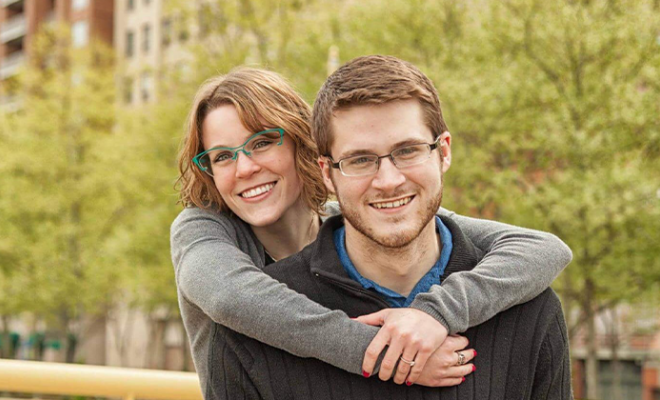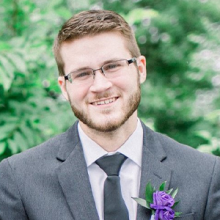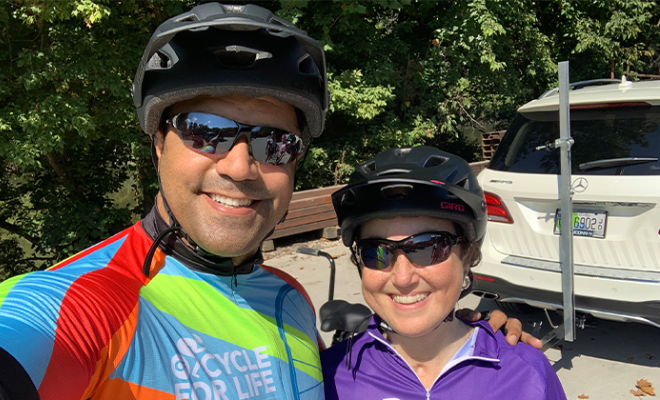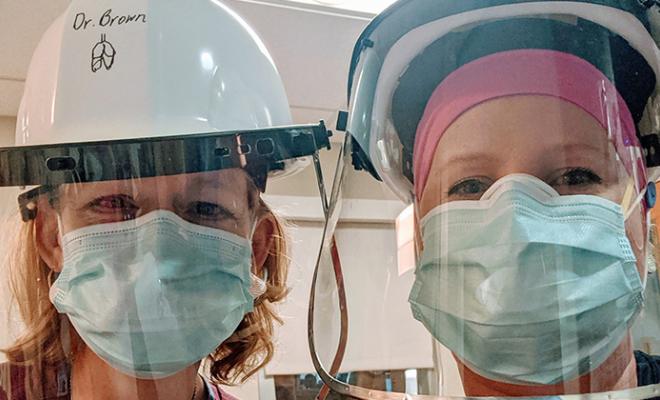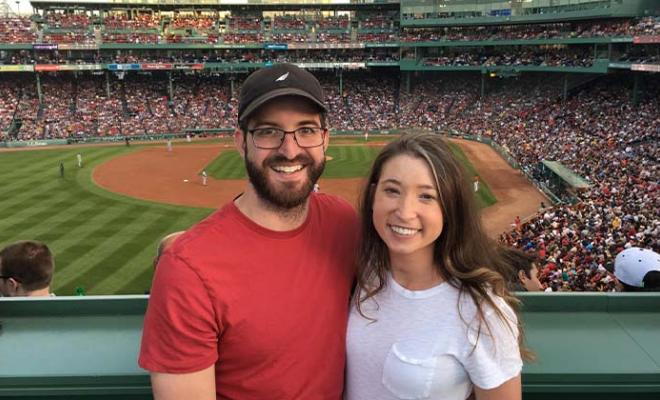Having CF has always involved doing things nobody else around us is doing because, well, we have to — and COVID-19 won’t be any different. As a post-transplant CF patient who happens to be a practicing pharmacist, I am writing about the tools we now have in a world of limited universal restrictions and precautions.
If you’re like me, our collective return to “normal” has been an equal source of relief and anxiety. I’m encouraged by the preventative and post-infection treatments that are now available for COVID-19. I’m comforted by the knowledge we’ve gained since the beginning of 2020 on how it spreads, how we can reduce our risk, and how we can treat it. At the same time, I’m anxious about what we don’t fully understand — when will the next virulent mutation develop? How long does our immunity last? One way to ease these anxieties is to become educated on ways to protect ourselves and by developing a plan to implement immediately if we test positive. As a post-transplant CF patient who also happens to be a practicing pharmacist, I am writing about the tools we now have in a world of limited universal restrictions and precautions.
Vaccinations
As far as preventative measures, vaccination remains key. At this point, the evidence is overwhelming that vaccination is both safe and effective at preventing severe disease, hospitalization, and death. For the transplant population, it is also well established that response to vaccination is significantly reduced due to the level of immunosuppression that is required after transplant.
Being told that you didn’t mount a response to the primary vaccine series is frustrating and disheartening (I can relate — I didn’t produce antibodies either), but studies have shown that in patients who had either low or undetectable antibody levels, following the primary series, approximately 44% did ultimately mount a response to additional doses.
In other words, the fact that you did not respond once does not mean you won’t ever respond, so it is important to continue staying up to date on your vaccinations.
Evusheld
Thankfully, our post-transplant population has something in addition to vaccination. Evusheld (tixagevimab/cilgavimab) is a long-acting monoclonal antibody injection that works independently of your immune system. Vaccines rely on an adequate immune response to be most effective. Evusheld circumvents this issue as it doesn’t rely on your body producing antibodies — it is the antibodies. Slight alterations have modified the antibody structure that greatly extend the amount of time they are active in your body, allowing it to be effective for approximately 6 months following a one-time dose. All adults and children over 12 weighing at least 88 pounds who are moderately or severely immunocompromised are eligible to receive Evusheld. It has been very well tolerated with minimal side effects reported. Even though it is given the same way as a vaccine, many of the common vaccine-related side effects (e.g., body aches, flu-like symptoms) are not typically seen with Evusheld as it does not trigger the same kind of reaction. Evusheld is only recommended for transplant patients because we do not mount an adequate response to vaccination.
I’ve always described CF as, above all else, a very frustrating disease. A disease where you can do everything right — hours of daily treatments, hundreds of weekly pills, endless clinic appointments — and the disease can still progress. This same idea can apply to COVID-19. People who have taken all possible precautions, physically distanced and masked for the last 2 years, and been fully vaccinated on schedule, have still found themselves testing positive. So, after briefly processing that this disease has dealt us yet another challenging hand, what do we do? First and foremost, reach out to your CF and/or transplant clinic immediately. Years of CF exacerbations leading up to my transplant has instilled the “tough it out” mentality in me. If it doesn’t get better in a few days, then I’ll make a call. So I get it, but that is certainly not the approach to take with a positive COVID test. Of the treatments we have, they are most effective when taken within 5 days from when you feel symptoms. Determining whether you are eligible to receive a particular treatment can depend on how long ago your symptoms began. So, time is crucial and reaching out to your clinic immediately will ensure that you receive treatment on time.
Paxlovid and Monoclonal Antibodies
Current treatment options for mild to moderate disease can be broken down into two main categories: 1) Paxlovid (nirmatrelvir/ritonavir) and 2) various monoclonal antibody (mAb) treatments. The mAb selected will typically depend on the most prevalent viral strain at the time. As the virus mutates, certain mAbs lose their efficacy and will be removed from the “rotation.” Paxlovid can be a convenient option as it is taken orally (for 5 days) and can be filled at outpatient pharmacies. It is authorized for people aged 12 or older weighing at least 88 pounds with mild/moderate disease who have tested positive and are “at high risk for progression to severe COVID-19.” All CF patients meet the high-risk classification as “chronic lung disease” alone is one of the criteria. However, it may not be the best choice for CF/transplant patients due to its long list of drug interactions, including — but not limited to — highly significant interactions with CFTR modulators like Trikafta and immunosuppressants like tacrolimus and cyclosporine. For this reason, your care team may recommend treatment with a mAb. The drawback to mAb therapy is that it may not be as convenient as Paxlovid and will need to be given as an injection. Ultimately, this will be a decision made between you and your care team depending on your situation. Note: there are other treatments, such as IV remdesivir, that may be better for you and could be considered if you were to progress to severe disease requiring hospitalization that you can talk to your inpatient care team about if it becomes necessary.
To find free and local testing centers, the U.S. Department of Health and Human Services has an online tool called Test to Treat. You can also use it to find local pharmacies that can fill Paxlovid (note: you will need your doctor to send a prescription). Your clinic will likely be familiar with the best location to receive monoclonal antibody treatment and can direct you through the scheduling process so that it is received as soon as possible.
As many around us seem to be letting their guard down, these times can evoke high anxiety for us in the CF community. It’s hard to constantly hear that we need to "move on" and that "most people will be fine" when you very clearly are not "most people." Having CF has always involved doing things nobody else around us is doing because, well, we have to — and COVID-19 won’t be any different. Continue to make the smart (but sometimes tough) decisions, stay up to date on the latest treatments and develop a plan for if you were to test positive. Lastly, try to find some comfort in the fact that the world of COVID therapeutics is constantly evolving and expanding and while we can never completely eliminate the risk of a bad outcome, a lot of work is being done to protect those of us who need it the most.
Interested in sharing your story? The CF Community Blog wants to hear from you.

